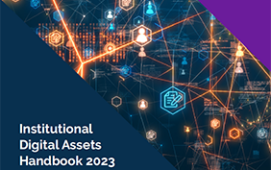
The costs associated with poor quality software coding are startling. In dollar terms alone, companies in the US incurred a US$2.4 trillion hit from the direct impacts and cost of correcting poor coding, according to a 2022 survey by the Consortium for Information and Software Quality (CISQ).
That’s before indirect costs such as reputational and legal damages are considered.
With financial institutions’ greater dependence on technology and speed of execution, the costs of software failure and slow runtimes are potentially higher. The same survey found that the dollar-value impact of operational failure was as much as 72 times higher for large financial brokerages than it was for other industries.Since its creation in 2018, TurinTech AI has been on a mission to help firms reduce costs. The UK-based company leverages GenAI to pinpoint areas in mission-critical software systems where optimisation is needed and then it generates better code to enhance performance and efficiency.
TurinTech AI’s technology offers a range of services that can streamline billions of lines of code to reduce applications’ pressure on CPU processing power and cloud use. By doing so companies also reduce the energy needed to carry out their everyday processes, a benefit that decreases their carbon footprint, said chief executive Leslie Kanthan.
“Financial institutions, banks and hedge funds have huge amounts of code –hundreds of millions of lines of code – and it would take 40 Guys 10 years just to review a couple of million lines of code; it’s an intractable problem,” Kanthan told Data Management Insight.
Efficiency Gains
TurinTech AI was formed by three PhD candidates who met at University College London and had gained experience of – and become frustrated by – the code optimisation tasks they’d been required to carry out at the financial companies where they subsequently worked. They founded TurinTech AI with its first product, a code generator powered by machine learning called evoML. Its GenAI Artemis AI code optimiser followed.
TurinTech AI says that its Artemis AI innovation has allowed clients to improve the efficiency of their coding by as much as a third. For example, it was able to improve by 32.7 per cent the runtime of pull requests on QuantLib – an open-source code library favoured by financial institutions for quantitative finance tasks, including modelling and trading.
“It ensures that you are using less of your service resources,” said Kanthan. “So if your code was taking up 30 per cent of your Amazon budget, it might now be taking 20 per cent of your Amazon budget and at the same time improving your footprint for ESG.”
Firms can be expected to dedicate about half of their overall software development budgets to debugging and fixing errors over the 25-year life expectancy of a large software system.
That low-skill work will most likely be carried out by highly trained technology professionals. Kanthan points to the experience of a globally known technology brand client that employed hundreds of developers to manually go over code to find inefficiencies.
“They’re all PhDs and professors who should be building new applications not going back through existing code,” he said. “We saved them the time, we saved them the labour resource, we gave them cost efficiency and we allow them to get more output from what they already had.”
Speed Bumps
Financial institutions face greater exposure to coding quality challenges also because they need to develop and deploy new applications at speed. Under such time-to-market constraints, developers will build applications as quickly as possible, and that might mean they use tried-and-trusted phrasing that may not be the most efficient.
A common example, Kanthan said, is the use of for-loops, which are quick to write and are reliable, but they are not as efficient as other structures.
“It’s so hard as a developer to do things the most efficient way because of the time constraints; if they’re given an objective and told it is needed by the end of the week, they do it as quickly they possibly can – their priority is to get the result they want,” said Kanthan. “So, they might do it in a messy way that duplicates many functions.”
The pressure to default to a reliable solution is also seen in the continued use by some organisations of the Fortran. It’s an old CPU-hogging language but it is dependable, and replacing it would incur a huge transitional cost. TurinTech’s Artemis AI can be deployed to translate those old-style codes into modern and more efficient C++.
“Fortran is a very old and obsolete language but because it works, it doesn’t break and no one wants to touch it,” said Kanthan. “It’s too expensive to get Fortran developers because they are hard to find and very expensive. So, you’re talking about spending thousands of pounds per day per person to work on millions of lines of code, using our product will bring enormous savings.”
Subscribe to our newsletter



